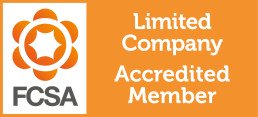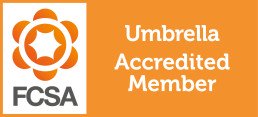Share this article

Setting up a limited company is the most tax-efficient way to operate as a contractor – subject to your contracts falling outside of IR35. Our short guide will help you gain an understanding of the various taxes you will be liable for as a limited company director.
Personal Tax and Company Tax
When you start contracting through your own limited company, you will be liable for several business taxes, as well as your own personal taxes. We’ve compiled a summary of the taxes you could encounter as a limited company director.
Corporation Tax
When you incorporate a new company, you will automatically be sent a form by HMRC to register to pay Corporation Tax. You must complete this form and register within 3 months of your company starting to trade.
Every financial year your company will need to complete a company Corporation Tax return (CT600). Corporation Tax is due on the profits the company has earned after salaries, and other business expenses have been deducted, but before dividends are withdrawn. The CT600 provides details of your company’s income, minus any tax allowances and expenses.
Corporation Tax is due within nine months and one day after the end of your accounting period for the previous financial year – this is also known as your year-end. The Corporation Tax main rate for the 2020 financial year is 19%.
You can find more information about Corporation Tax on the government’s website.
Value Added Tax (VAT)
If your annual taxable turnover is £85,000 or more, you must register for Value Added Tax (VAT). However, in many instances, it can be beneficial to register for VAT even if you do not exceed the threshold as it could benefit you financially.
VAT is charged on many goods and services in the UK, and it is a company’s responsibility to collect it on behalf of HMRC, rather than the government collecting it directly like other taxes.
If you are VAT registered, you are required to apply VAT to all services you provide to your clients (excluding exempt services), and you can deduct the cost of any VAT your business incurs on day-to-day expenses (subject to conditions of the VAT scheme you join).
The standard rate VAT for goods and services is 20%, but please be aware there are some goods and services which are reduced rate (5%) and zero-rated (0%). The government has also introduced a temporary 5% reduced rate of VAT for specific supplies of hospitality, hotel and holiday accommodation, and admissions to certain attractions to support businesses during the coronavirus pandemic.
Depending on your circumstances, you can register for the standard rate VAT scheme, the Flat Rate VAT scheme, the annual accounting VAT scheme or the cash accounting scheme. Deciding on which scheme to register with will largely depend on the type of business you run. VAT laws can be quite complex and challenging to understand, and a good accountant will be able to suggest an appropriate VAT scheme based on your circumstances.
Since the 1st April 2019, VAT registered businesses with a VAT taxable turnover of over £85,000 are required to store their VAT records digitally. All eligible businesses have also been filing their VAT returns online since the Making Tax Digital for VAT legislation was introduced.
You can find more information about VAT on the government’s website.
National Insurance
When deciding on the level of salary to pay yourself, you need to consider various factors, particularly the National Insurance thresholds and the current Income Tax bands (including personal allowance). The salary you pay yourself will dictate the amount of tax you pay, and this will be different for every business – there is not a one size fits all model. A good accountant will advise you on the most advantageous way to draw salary and dividends from your company based on your circumstances and earnings.
A limited company will pay 13.8% Employers National Insurance (NI) on salaries above the secondary threshold of £169 per week or £8,788 per year (for the 2020/21 tax year). Employee’s (including limited company directors) also pay employee’s NI on salaried income over the primary threshold of £183 per week or £9,500 per year for the 2020/21 tax year). The rates are 12% on earnings above £183 per week and 2% on income above £962 per week.
If your limited company is eligible, you could reduce your annual NI bill by up to £4,000, thanks to the Employment Allowance. You can claim the allowance via the payroll process, and you could be eligible if your employers’ class 1 NI liabilities were less than £100,000 in the previous tax year. As a lot of professional contractors pay themselves small salaries, many are unlikely to have much to reclaim.
You can find more information about National Insurance on the government’s website.
Income Tax
If you are a limited company director and draw salary above the annual personal allowance (£12,500 for the 2020/21 tax year), this will be subject to Income Tax. The amount of Income Tax you will pay will depend on your overall annual income and the tax band you fall into.
After your personal allowance has been used, you will pay basic rate tax (20%) on income up to £37,500, higher rate tax (40%) on income between £37,501 and £150,000, and additional rate tax (45%) on income over £150,000.
If you earn above £100,000, the value of your personal allowance is reduced by £1 for every £2 over the threshold. However, many company owners choose to pay themselves a small salary which is subject to minimal amounts of Income Tax and NI and take most of their income in the form of dividends.
You can find more information about Income Tax on the government’s website.
Income Tax on Dividends
Alongside the main taxes your limited company is liable to pay, you will also pay Income Tax on the dividends that you pay yourself. A dividend is a sum of money that a limited company pays to someone who owns shares in the company. However, unlike salaried income, dividends are not subject to NI and are paid via a personal tax return to HMRC each year.
To settle your tax liabilities, submit your tax return, along with any taxes owed, by 31st January deadline. You may also be required to make a payment on account towards the end the following tax year if you haven’t yet paid more than 80% of the tax owed or your last tax bill was more than £1000. Payments on account are due in two instalments (31st January and 31st July) and are a way of paying off some of your tax bills in advance.
Completing a personal tax return can be daunting, especially if you have never filed one before. By appointing the help of an expert personal tax team, they will take care of everything from completing all the forms on your behalf to submitting your tax return to HMRC.
You do not pay tax on any dividend income that falls within your personal allowance (the amount of money you can earn each year without paying tax). The first £2,000 of dividends are also included as part of a tax-free dividend allowance, although they still form part of your overall tax allowances.
How much tax you pay on any dividend income after the allowances depend on your Income Tax band. The tax rate on dividends over the allowance are 7.5% basic rate tax, 32.5% higher rate tax and 38.1% additional rate tax.
Any tax due on dividends will need to be paid from your personal bank account and not your business account.
You can find more information about dividend tax on the government’s website.
Capital Gains Tax
If you sell or dispose of an asset that’s increased in value (such as property, investments or shares), you could also be liable to Capital Gains Tax. Capital Gains Tax is due on the profits or gains of an asset, and you will only pay tax once you have exceeded your annual tax-free allowance – £12,300 for individuals and £6,150 for trusts. The standard rate tax band is 18% for residential property and 10% for other assets, and the higher rate tax band is 28% for residential property and 20% for other assets.
You can find more information about Capital Gains Tax on the government’s website.
We’ve been providing specialist contractor accountancy for over 20 years
Founded in 1998, Churchill Knight & Associates Ltd has become one of the most esteemed contractor accountants in the UK. Whether you are setting up a limited company or switching from an existing provider, we have carefully curated a range of services to suit contractors and freelancers at each career stage.
For more information about our limited company services, please contact our expert team on 01707 871622 or complete the short form on our website to arrange a call. We look forward to speaking with you!
About Churchill Knight
Founded by an IT Contractor in 1998, Churchill Knight has become one of the most respected contractor accountants in the UK. We’ve helped over 20,000 contractors with their accountancy requirements. As well as our accountancy services, we also have an industry-leading PAYE umbrella company and dedicated in-house personal tax department. Whichever service you choose, you can move forward with complete peace of mind. We are proud of the reputation we’ve built over the years, and our FCSA accreditation proves how committed we are to compliance within our sector. Keep reading…


We're regularly adding new, helpful content
The Churchill Knight blog is regularly updated with helpful content for contractors and freelancers – especially articles that answer the most frequently asked questions about umbrella companies! Please pop back shortly to see the latest articles written by Andrew Trodden (Marketing Manager) and Clare Denison (Marketing Executive).
